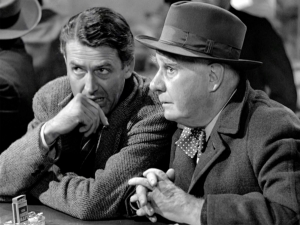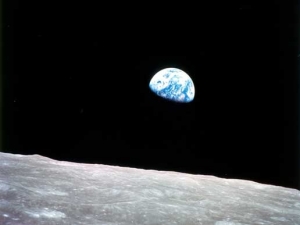At DeYoung, Restless, and Reformed.
Providence
Roger’s God
Editor’s Note: Originally posted on Saturday, September 1, 2007 at 09:46AM. Lightly edited. Roger Olson is at it again. He wants to know where God was when the bridge collapsed in Minneapolis. The smart aleck answer, of course is, “Everywhere, right where . . . Continue reading →
Lee: Christianity Neither Conservative Nor Socialist
URCNA Pastor, the Rev Dr Brian Lee, a WSC grad, has an stimulating OpEd piece in today’s Daily Caller. He argues “Both the Christian Right and the Christian Left get the question of Christianity and politics wrong. Christianity is not politically conservative . . . Continue reading →
Boston and Free Choice
First, some cautions. Believers should be very careful about attempting to interpret providence just as we should be careful about seeking to know his hidden will. The truth is, according to Jesus (Luke 13), we don’t know why God permits evil in the . . . Continue reading →
Have We Become Bedford Falls Without George Bailey?
I know it’s a sentimental movie and I know that its view of angels isn’t biblical and I know that the anthropology of the film is problematic. Nevertheless, I get the sense that the whole country is becoming Bedford Falls without George . . . Continue reading →
Trust, Community, And Life (UPDATED)
For a long time I’ve sensed that something important has changed in our culture. It’s been hard to know, however, what to make of these perceptions and intuitions. When I was a boy, when someone came to the door, we invited them . . . Continue reading →
My Favorite Atheist Lesbian Author: A Case Study In Providence
I first encountered Camille Paglia in 1991, just after she had published the essay, “The Joy of Presbyterian Sex.” Blame Bob Godfrey. I was pastoring a church in Kansas City and happened to be visiting Escondido and stopped by Bob’s office. He . . . Continue reading →
Providence And Marriage In Genesis 24
Now Abraham was old, well advanced in years. And the Lord had blessed Abraham in all things. And Abraham said to his servant, the oldest of his household, who had charge of all that he had, “Put your hand under my thigh, . . . Continue reading →
Creator, Sustainer, Father (1)
One of the most basic impulses of the Enlightenment and post-Enlightenment west has been to get rid of God. The Enlightenment brought a revolution. In Christian antiquity, God was and we were becoming. In Modernity (and late modernity) we are and God . . . Continue reading →
Creator, Sustainer, Father (2)
In the first part we looked at the doctrine of God embedded in Heidelberg Catechism Q/A 26. The catholic (universal) Christian doctrine of God summarized in the catechism is in antithesis to modernist doctrine(s) of God in process or contingent upon us creatures. . . . Continue reading →
Providence: God’s Active, Almighty, Present, Power (1)
From the moment Adam sought to grasp equality with God (Phil 2), from the moment he mysteriously rebelled against God’s sovereignty and hiddenness (“You shall be as God”), from the moment he ceased to love and adore the triune God, since that . . . Continue reading →
Providence: God’s Active, Almighty, Present Power (2)
In the previous post we considered what it means to say “I believe in God the Father almighty. One of the most scurrilous things that some neo-Pentecostalists have alleged against the historic Christian view of God is that we are Deists. Quite . . . Continue reading →
Providence (3): The “As It Were” Principle
In part 2 we considered the biblical and confessional Reformed teaching that the triune God is actively present, sustaining and governing all that is. In our account of the doctrine of providence we use an interesting little expression that is freighted with . . . Continue reading →
Providence (4): Not A Chance In The World
In part 3 we considered the “as it were” principle when thinking and talking about God and his providence. We talk about chance all the time. “Not a chance” or “He never gave me a chance” and in those cases we’re talking . . . Continue reading →
Bullinger On “Common Grace”
For God in his mercy has permitted the powers of the intellect to remain, though differing greatly from what was in man before the fall. God commands us to cultivate our natural talents, and meanwhile adds both gifts and success. And it . . . Continue reading →
Heidelberg 125: Trusting And Asking Our Father To Provide
We are often tempted to set asking and trusting against each other but, of course, it is a false choice. When a child asks his Dad for breakfast he trusts that his father can provide. It does not occur to him to . . . Continue reading →
Continual Evil, The Ark, And God’s Restraining Mercies
Yahweh saw that the wickedness of man was great in the earth, and that every intention of the thoughts of his heart was only evil continually. And Yahweh regretted that he had made man on the earth, and it grieved him to . . . Continue reading →
Divine Sovereignty, Evil, Mystery, and “Calvinism”
Recently, a well-meaning “New Calvinist” (more on this nomenclature in part 2) posted some very blunt language on Twitter about the relationship between divine sovereignty and various ways in which people suffer in this world. He wrote that if you experienced X . . . Continue reading →
Your Only Comfort In Life And In Death
Introduction The Heidelberg Catechism is justly regarded as one of the finest summaries of the Christian faith ever written. First published in 1563, the catechism is used by more than a million Christians globally. The first question of the catechism is among . . . Continue reading →
What God Is Telling Us Through The Corona Virus
Whenever there is a dreadful, large-scale event, e.g., a terrorist attack or the outbreak of disease, someone is sure to announce that this is God’s judgment on the world for our sins. Without a doubt, by nature, after the fall, we all . . . Continue reading →










